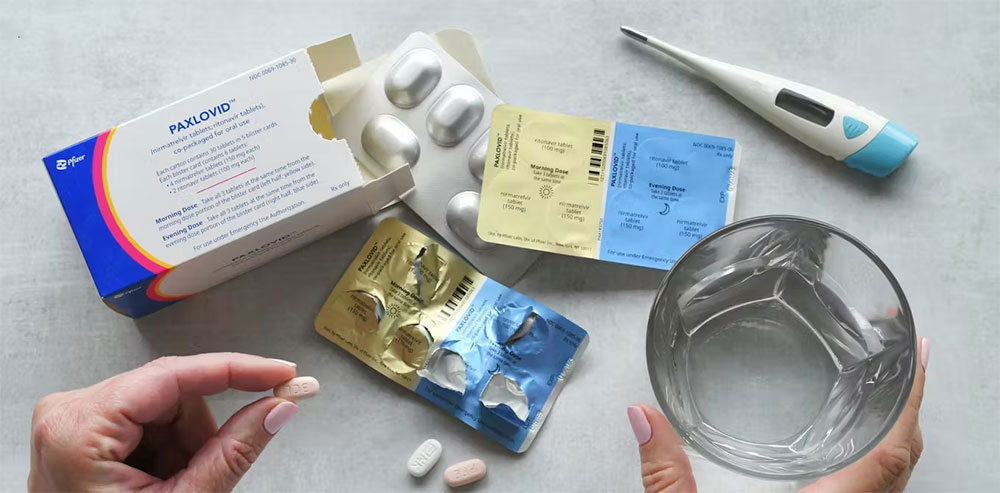Antiviral Medications: How They Work, When They Help, and What to Expect
Let’s talk about antiviral medications — not the ones you grab over the counter when you feel a sore throat creeping in, but the real deal: prescription antivirals used to fight off everything from influenza to HIV, herpes, hepatitis, and now even COVID-19.
If you’ve ever sat across from a physician and asked, “Will antibiotics help with this virus?” — and watched them gently shake their head — you’ve brushed up against a common misconception. Antibiotics kill bacteria, not viruses. For viral infections, the options are fewer and more specialized. That’s where antivirals come in.
🧬 What Exactly Are Antiviral Drugs?
Antiviral medications are a class of drugs designed to treat viral infections by interfering with the virus’s ability to multiply and spread. Unlike vaccines, which train your immune system to prevent an infection, antivirals are used after you’ve been infected — like the cleanup crew rather than the security system.
They don’t necessarily kill viruses outright (viruses aren’t technically alive), but they do things like:
Block viral replication
Prevent the virus from entering healthy cells
Inhibit enzymes essential to the virus’s life cycle
Boost the immune response (in some cases)
According to the National Institutes of Health, most antivirals target specific viral proteins or enzymes, which means they’re tailored to specific viruses, not broad-spectrum like some antibiotics.
💊 Common Types of Antivirals (and What They Treat)
| Medication | Primary Use | How It Works |
|---|---|---|
| Oseltamivir (Tamiflu) | Influenza A & B | Neuraminidase inhibitor — prevents the virus from escaping infected cells |
| Acyclovir / Valacyclovir | Herpes simplex, Varicella-zoster | Inhibits viral DNA polymerase |
| Remdesivir | COVID-19 | Inhibits RNA-dependent RNA polymerase |
| Tenofovir / Lamivudine | Hepatitis B, HIV | NRTIs – block reverse transcriptase, halting viral replication |
| Ritonavir-boosted protease inhibitors | HIV | Inhibit viral protease enzymes needed for replication |
| Sofosbuvir / Ledipasvir | Hepatitis C | Target RNA polymerase and replication complex proteins |
These aren’t “take one and feel better overnight” medications. For many viruses — especially the chronic or latent ones like HIV or herpes — antivirals are about suppression, not cure.
🧠 Real-World Example: Tamiflu and the Flu
A patient of mine — let’s call him Eric — called the office one December morning, complaining of high fever, body aches, and chills. He said his wife tested positive for the flu. He was 30 hours into symptoms.
We prescribed oseltamivir, and because he started early enough (within the critical 48-hour window), his fever broke sooner and his symptoms didn’t progress. Tamiflu doesn’t always work miracles, but it can shorten illness duration by 1–2 days, especially when taken early Mayo Clinic.
🧪 How Effective Are They, Really?
Effectiveness varies widely depending on:
Timing: Early is better. Antivirals are most effective when taken in the first 48–72 hours of symptom onset.
The virus itself: Some viruses mutate rapidly (like influenza), making treatment more difficult.
The patient’s immune status: Immunocompromised individuals may require longer or combined therapy.
For instance, Acyclovir reduces healing time and pain in herpes outbreaks, but doesn’t “kill” the virus — it lies dormant in nerves. Antivirals manage, not eradicate, most chronic viral infections.
In COVID-19, Remdesivir showed moderate effectiveness in hospitalized patients by reducing the length of illness in some trials (Beigel et al., 2020 – NEJM) — but not everyone improved, and the effect was modest.
⚠️ Side Effects and Downsides
Antivirals, while often life-saving, aren’t free of complications.
Nausea and vomiting (common with oseltamivir)
Kidney toxicity (acyclovir, especially IV)
Liver effects (some HIV medications)
Headaches, fatigue
Drug interactions – especially in HIV regimens
Long-term therapy, like in HIV treatment, may also carry metabolic risks, bone density loss, or lipodystrophy. Regular monitoring is essential.
🧬 What’s Next in Antiviral Development?
Viruses mutate. Resistance develops. That’s why research continues into:
Broad-spectrum antivirals that work across families of viruses (especially useful in pandemics)
RNA interference therapies
CRISPR-based antivirals
Host-targeted therapies — that boost the immune system rather than target the virus directly
“Viruses are the ultimate shape-shifters,” said Dr. Anthony Fauci, former director of NIAID. “You’re always one step behind — unless you find ways to stay ahead.”
As with antibiotics, antiviral resistance is a growing concern. Overuse or improper use can lead to strains that don’t respond to standard medications — especially in places where over-the-counter antivirals are poorly regulated.
💬 Patient Reflections
“I used to get cold sores so often it messed with my confidence,” said Megan, a 26-year-old grad student. “Now I take valacyclovir as soon as I feel the tingling — and sometimes the sore doesn’t even show up.”
“After I was diagnosed with Hep C, I thought I’d be dealing with it forever,” one patient said. “But after 12 weeks of sofosbuvir and velpatasvir, I was cleared. That was a miracle I didn’t expect.”
Antiviral medications are precision tools, not magic bullets. They’re most powerful when used quickly, correctly, and for the right infection. Understanding how they work — and what they can’t do — is just as important as having them on hand.
They’re not about silencing every sneeze or cough, but about turning the tide in serious infections, managing chronic viral illnesses, and preventing transmission to others.
Got questions about antivirals you’ve been prescribed? Ask your doctor the when, why, and how. That’s where the best outcomes begin — with understanding, not just swallowing pills.
📚 Citations & Resources:
Beigel, J. H., Tomashek, K. M., Dodd, L. E., et al. (2020). Remdesivir for the Treatment of COVID-19 — Final Report. New England Journal of Medicine. https://doi.org/10.1056/NEJMoa2007764
Mayo Clinic Drug Index: Oseltamivir https://www.mayoclinic.org/drugs-supplements/oseltamivir-oral-route/description/drg-20065993
NIH Clinical Pharmacology of Antiviral Drugs: https://www.ncbi.nlm.nih.gov/books/NBK547852/
